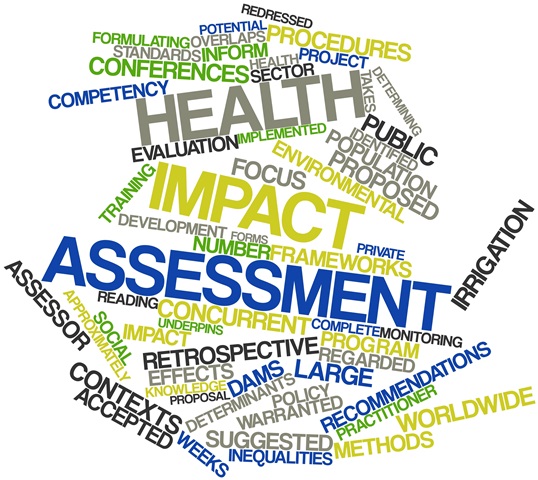
Parties to the Convention on Environmental Impact Assessment in a Transboundary Context (Espoo Convention) and its Protocol on Strategic Environmental Assessment decided last week to turn the Protocol into a fully global instrument and to simplify the future accession of non-United Nations Economic Commission for Europe (UNECE) countries to the Convention.
The 2003 Protocol provided for the possibility of all United Nations Member States to become Parties — but only upon approval of the governing body, the Meeting of the Parties. Wishing to facilitate the opening of both treaties, Parties last week unanimously decided to lift the requirement for a prior approval for any future accession by non-UNECE countries. As a consequence, the Protocol is now fully open for accession by any United Nations Member State.
In the declaration adopted last week at the sixth session of the Meeting of the Parties to the Convention and the second session of the Meeting of the Parties to the Protocol, held in Geneva from 2 to 5 June, Parties reiterated the Protocol’s key role in promoting principles 4 (Environmental protection as an integral part of development) and 10 (participation of the public in decision-making on environmental matters) of the Rio Declaration on Environment and Development and in helping countries achieve the Millennium Development Goals both within and beyond the region.
The Protocol is today the only legally binding international instrument ensuring that environment and health considerations, and public concerns are integrated into development planning and policymaking, including related to greening the economy and climate change mitigation at the earliest stages.
In the Declaration, Parties recognize the need for a further exchange of knowledge, practices and experiences on strategic environmental assessment and transboundary environmental impact assessment among all regions of the world. They also acknowledge the need to raise awareness of the benefits of the two treaties and to assist countries within and beyond the region in their efforts to build capacities to effectively implement them. In this respect, a seminar organized by the European Investment Bank with participation of several international financial institutions highlighted the role of these institutions and of national bilateral aid agencies in implementing the Convention and its Protocol.
Meeting documents are available from: http://www.unece.org/env/eia/meetings/mop_6.html.
National implementation reports submitted by Parties (2010–2012), including case-studies: http://www.unece.org/environmental-policy/treaties/environmental-impact-assessment/areas-of-work/enveiaimplementationreview-implementation/review-of-implementation-2013-protocol.html
On that basis, the review of implementation was prepared and is available at: http://www.unece.org/DAM/env/documents/2014/EIA/MOP/ECE.MP.EIA.SEA.2014.3_e.pdf
Case study (Poland) on the application of the Protocol on SEA to regional spatial planning (including transboundary procedures): http://www.unece.org/DAM/env/eia/documents/mop6/2_Fact_Sheet_Study_Case_on_SEA_long_version.pdf
Note to editors:
The Convention on Environmental Impact Assessment in a Transboundary Context (Espoo, 1991) is the only international instrument under the umbrella of the United Nations that offers a legal framework to ensure international cooperation in assessing and managing environmental impacts of planned activities, in particular in a transboundary context. In force since 1997, it has 45 Parties, including the European Union. The Convention was negotiated as a regional instrument but amended in 2001, to provide for the possibility of non-UNECE countries to join as Parties. The amendment will enter into force on 26 August 2014, but to become operational and allow accession by any Member State of the United Nations, it must be ratified by a further 15 Parties that were Parties to the Convention in 2001.
The Convention has been applied thousands of times to date and is applied more and more often. This growth reflects the increase in the number of Parties, but also indicates that States find transboundary environmental assessment a valuable procedure for informing and consulting the authorities and the public of neighbouring countries.
The following countries are Parties to the Espoo Convention: Albania, Armenia, Austria, Azerbaijan, Belarus, Belgium, Bosnia and Herzegovina, Bulgaria, Canada, Croatia, Cyprus, Czech Republic, Denmark, Estonia, Finland, France, Germany, Greece, Hungary, Ireland, Italy, Kazakhstan, Kyrgyzstan, Latvia, Liechtenstein, Lithuania, Luxembourg, Malta, Montenegro, Netherlands, Norway, Poland, Portugal, Republic of Moldova, Romania, Serbia, Slovakia, Slovenia, Spain, Sweden, Switzerland, the former Yugoslav Republic of Macedonia, Ukraine and United Kingdom of Great Britain and Northern Ireland. The European Union is also a regional integration organization member.
In 2003, the Convention was supplemented by the Protocol on Strategic Environmental Assessment. Since its entry into force in 2011, the Protocol concretely helps to lay the groundwork for sustainable development: it ensures that Parties integrate environmental, including health, considerations and public concerns into their plans and programmes, and to the extent possible also into policies and legislation, at the earliest stages. To date, the Protocol counts 26 Parties, including the European Union.
The following countries are Parties to the Convention’s Protocol: Albania, Armenia, Austria, Bulgaria, Croatia, Czech Republic, Denmark, Estonia, Finland, Germany, Hungary, Lithuania, Luxembourg, Montenegro, Netherlands, Norway, Poland, Portugal, Romania, Serbia, Slovakia, Slovenia, Spain, Sweden and the former Yugoslav Republic of Macedonia. The European Union is a regional integration organization member.
UNECE provided the setting for the negotiation of the Convention and its Protocol and now provides the secretariat for the two treaties.